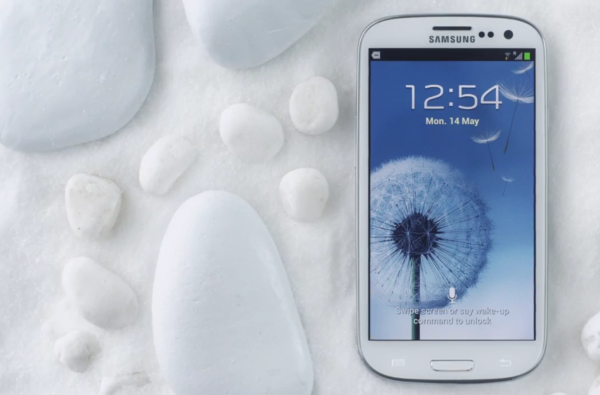Samsung and Sprint dim iPhone 5's launch-sales glow

Only T-Mobile can save iPhone now. Apple's U.S. market share, as measured by smartphone operating system, retreated in February, according to data Kantar Worldpanel ComTech released today. With the iPhone 5 initial release sales glow gone, and a rapidly saturating market for a product feature set now three models old, share isn't sustainable. Meanwhile, Android gains -- as does Windows Phone.
iPhone share, based on sales, fell to 43.5 percent for the three months ended in February. That's down from 45.9 percent in January and from 47 percent a year earlier. By comparison Android is up -- to 51.2 percent from 49.4 percent sequentially and 45.4 percent annually. By the same reckoning, Windows Phone rose to 4.1 percent from 3.2 percent and 2.7 percent share.
But there is more than cooling iPhone 5 sales at work here. "Last month we saw that Android’s increases were thanks to a large increase in Samsung sales within Sprint", Mary-Ann Parlato, Kantar Worldpanel ComTech analyst, says. "This month, while the increases for Samsung are less pronounced, we’re still seeing an increase in uptake of the brand, which is now impacting on Sprint’s overall share in smartphone sales".
Read that paragraph again. iPhone was supposed to save Sprint, as T-Mobile USA also hopes. With Samsung sales lift, Sprint's U.S. smartphone sale share rose to 15 percent from 12.9 percent year over year. T-Mobile nicked up, to 9.8 percent from 9.1 percent. By comparison, AT&T smartphone sales share fell 3.7 points to 26.7 percent and Verizon by 1.1 points to 35 percent.
For AT&T, which is most dependent on iPhone, share dipped to 67.9 percent from 68.4 percent, while Android dramatically jumped -- from 20.8 percent to 26.5 percent.
Sales data for all the carriers suggests some ebbing loyalty among existing iPhone users. Meanwhile, Samsung loyalty increases, however, largely at the expense of other Android phone makers rather than Apple.
"Of those who changed their phone over the last year to a Samsung smartphone, 19 per ent had previously owned a Samsung featurephone, 15 percent owned a HTC smartphone, 14 percent owned an LG featurephone, 10 percent owned a Samsung smartphone and 9 percent owned a BlackBerry", Parlato says. "It’s apparent that Samsung is successful at capturing users from across the competitor set and not just gaining from their own loyalists".
The data foreshadows much ahead. T-Mobile begins selling iPhone for the first time on April 12, which presumably will unleash unprecedented demand among existing customers. Meanwhile, new, compelling data plans offer iPhone users another carrier option. I just moved three lines to T-Mobile from AT&T for a monthly bill of $120 -- unlimited text, talk and web. I downgraded the remaining two AT&T lines. For 550 minutes calling, unlimited texting and 3GB data for one line and 300MB data for the other, cost is pennies less than T-Mobile. The point: iPhone could get some sales lift during April and May.
Then there is Galaxy S4, which goes on sale later this month. AT&T starts taking preorders in 15 days. For the three months ended in February, Galaxy S III accounted for 52 percent of Samsung sales, followed by 21 percent for its predecessor and 5 percent for Galaxy Note II. The breakdown hints what to expect from the S4 but not whether there will perceptible increase in overall Samsung smartphone sales.
